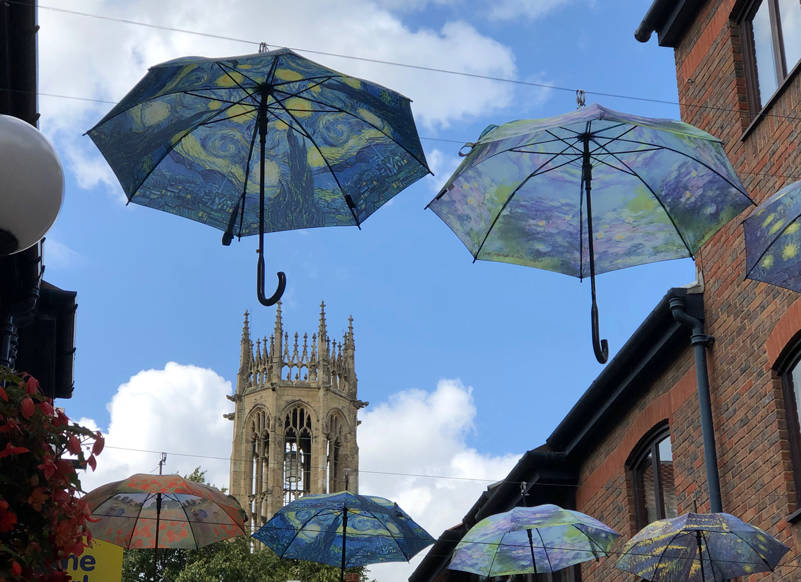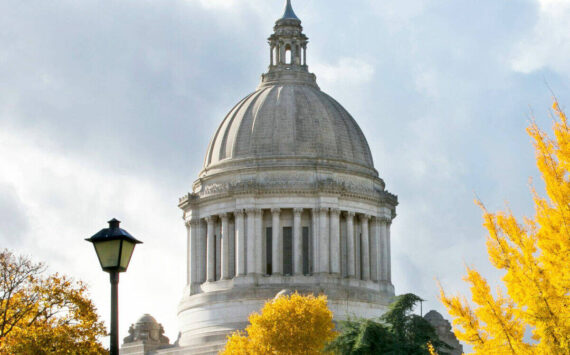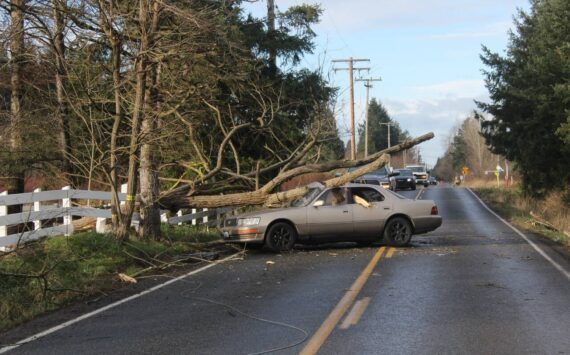By Morf Morford
Tacoma Daily Index
Like everything else perhaps, it’s difficult to tell where the economy is when you are in the middle of it.
Some say we are in a recession; others say we are in a recovery – even a “miracle” recovery.
Not to be evasive, but the reality is both.
The stock market is at record highs – but so are demands at local food banks.
Many clients of food banks are experiencing serious economic hardship for the first time.
The director of a food bank in western Massachusetts, for example, recently said, “I thought I had seen the worst during the Great Recession [of 2008-2009]. But what we have experienced since March due to COVID-19 has really overwhelmed us.”
You may have seen, right before Thanksgiving, thousands of cars “stretching as far as the eye can see” in line to receive free food from a food bank in Dallas, Texas.
Similarly, Miami had a “massive food bank line stretched for two miles.”
You can see the same thing in big cities like New York and LA, to quieter towns like Erie, Pennsylvania, and across the world.
In the small town of Dorset in southwestern England, food banks have handed out an astonishing 1.2 million meals over the past few months, shattering all previous records.
And local officials say that was just the beginning.
Locally, Food is Free tables are popping up (and emptying out) in almost every neighborhood.
One person I know had 500 frozen turkeys to give away. And people lined up for them until they were gone. This was in a neighborhood not far from where I live.
COVID, and the lockdowns, are choking businesses and pushing individuals and families into a financial abyss.
Yet somehow, the stock market is at all-time highs.
More than 11 million people in the US alone are unemployed. 2.7 million homeowners are in forbearance (meaning they’re not paying their mortgages). Millions more are relying on food banks to feed their families.
Consumer spending (which makes up 70% of US GDP) continues to be far below where it was before the pandemic.
According to Standard and Poors, corporate profits of the S&P 500 are down 48.96% compared to a year ago.
Entire industries— retail, travel and tourism, commercial real estate— have been completely inverted. And it’s unclear if they’ll ever fully recover.
Lockdowns have already restarted across the country, and Joe Biden’s advisors are suggesting that the entire nation should lock down for 4-6 weeks early next year.
We are locked in a battle of opposite economic forces, where none of the basic rules seem to apply; somehow lower profits with lower consumer spending and higher unemployment plus a ravaged economy (for the foreseeable future) and soaring demand for food banks adds up to record high stock prices.
You don’t need a PhD in finance to understand that this makes absolutely no sense— the stock market is completely disconnected from any reference to reality.
Our economy, if not the entire global economy, is no longer about productivity, innovation, profitability, or sustainable, enduring economic health or growth.
Real wealth comes from production and value creation.
As dark as that might seem, the economy is in better shape than it was six months ago.
But even when or if COVID suddenly and miraculously disappears off the face of the Earth, there would still be the legacy of trillions upon trillions of dollars of new debt to contend with.
Consumer debt, corporate debt, and government debt have all soared to all-time highs due to COVID.
Debt is not wealth. Going into debt means borrowing from future prosperity in order to consume today. Debt has to be repaid eventually, and serviced. This is the opposite of growth and wealth.
If you have to be in debt, it’s a good idea to pick a time when interest rates are low. Right now they are at record lows – and cannot get much lower.
Yes, we should all cheer when the COVID vaccine arrives. Even if many don’t take it, enough of us will, and just the fact that it exists should cheer us up, and open the doors of businesses that many of us are eager to support.
After several months of shopping primarily online, “shopping local” is going to have an entirely new meaning.
It’s going to take some getting used to.
Crowds of people, or waiting in line will feel completely different.
Working from home, shopping from home, and of course entertainment at home has all become our new, familiar “normal”.
It’s difficult to take in, but every aspect of our economic landscape will be different when we emerge from this COVID induced financial coma.
Working, commuting, shopping, vacations, interest rates, housing prices and a few more elements are up in the air like odd objects being juggled by a team of maniac clowns at a circus that never stops.
For now, thanks to forces we can barely discern, or maybe obliviousness on a global scale, the stock market surges.
There’s an old saying about investing; invest in what you know.
What we all know in 2020 is that standard rules don’t seem to apply. And it seems that as soon as we learn the rules, they change again.
Supply and demand, cost/benefit ratios and debt all shift in meaning and power by the day.
“It ain’t over ‘til it’s over” and “survive today to fight again tomorrow” might be the words to live by until, or if, a more stable economy settles in around us.
Too many of us, businesses and individuals alike, are hanging on by a thread or two.
Crawling our way back, and getting our groove back is going to be a pure uphill struggle, but we’ve done it before and – maybe, just maybe, we’ll put a few stops in place so we don’t fall so far back next time.
This is the hundred-year plague, once in a lifetime economic recession and once in a generation level of urban strife.
We could learn something from all this, and build a solid foundation of laws, rules and business practices.
We could plan for catastrophes, knowing that they will come someday.
Or we can party until the lights go out for good.







